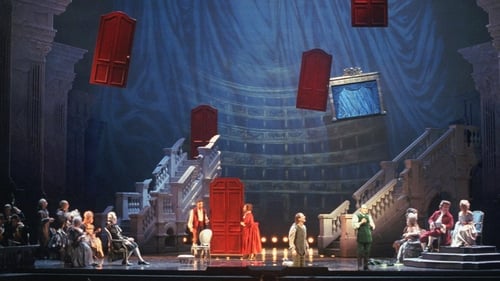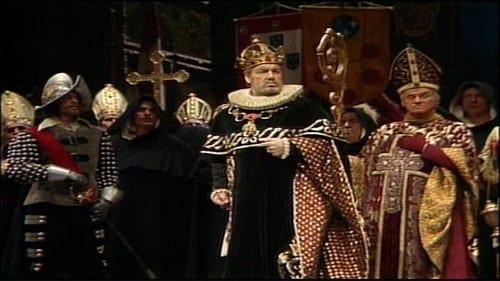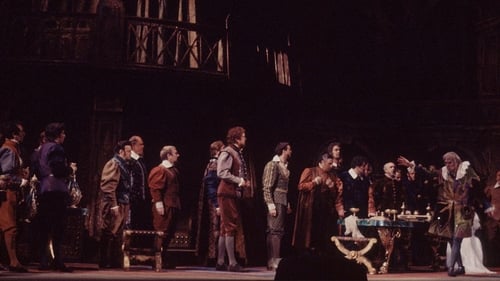Betsy Norden
Nascimento : 1945-10-17, Cincinnati, Ohio, USA

Gossip
What happened to Figaro and his friends after the events told in Rossini’s and Mozart’s operas? One possible sequel is told in John Corigliano’s “grand opera buffa” The Ghosts of Versailles—an uproariously funny and deeply moving work inspired by Beaumarchais’s third Figaro play, La Mère Coupable, and commissioned by the Met to celebrate its 100th anniversary. This telecast captures its world premiere run, conducted by James Levine. Håkan Hagegård is Beaumarchais, Figaro’s creator, who is deeply in love with Marie Antoinette (Teresa Stratas in a heart-searing performance) and determined to rewrite history and save her from the guillotine. A young Renée Fleming, at the beginning of her international career, sings the unfaithful Rosina. Gino Quilico is the wily Figaro who tries to take matters in his own hands, and Marilyn Horne stops the show as the exotic entertainer Samira.

In this legendary production, director John Dexter and designer David Reppa brilliantly captured the stark drama of Poulenc’s only full-length opera, which tells the story of a group of nuns caught in the maelstrom of the French Revolution. Maria Ewing is Blanche de la Force, an aristocratic novice who flees her convent when it is desecrated, only to return and join her fellow nuns as they are led to their execution. The legendary Régine Crespin, in her final Met appearance, is Madame de Croissy, the prioress whose agonizing death haunts Blanche. Jessye Norman sings Mother Lidoine, the new prioress, and Florence Quivar is the comforting Mother Marie. French maestro Manuel Rosenthal conducts.

Thibault
Ghiaurov, Freni, and Bumbry were great voices in their time, and they are still effective here -- good enough musicians to put over the quite heavy vocal and expressive demands of their roles. Louis Quilico was never quite in that league, and he sounds a bit spread and woofy in places here, but he works hard and effectively to bring Rodrigo to life. Placido Domingo recorded his first Don Carlo, for EMI with Giulini, about 15 years before this production, but he looks and sounds fine here -- in the early 1980's he was doing very good Otellos and Lohengrins too, and Furlanetto, still in his 30's, brings a rich, young voice to an old part and succeeds in making the Grand Inquisitor vocally as well as expressively formidable. Levine brings both weight and energy to the score, and that reading fits well with the overall "traditional" design and production -- the Met's wardrobe budget must have been severely taxed, but everybody looks splendid.

The Dew Fairy
The Metropolitan Opera's performance of "Hansel and Gretel" features music by Engelbert Humperdinck and is conducted by Thomas Fulton. The Met's storybook production cheerfully evokes a magic world of woodland sprites and candy dreams and yet brings as well the entire apparatus of Wagnerian music and drama to bear on a German fairy tale. This production is sung in English, and features the Metropolitan Opera, Chorus, and Ballet.

Countess Ceprano
The opera's dramatic structure frames and enhances the characters. Scenes of magnificence regularly alternate with scenes of darkness and squalor. From sumptuous interiors, we move to a dark street, a lonely inn. The secondary figures are astutely counterpoised: the plotting courtiers against the plotting Sparafucile and Maddalena (also ambiguously tender-hearted). When Rigoletto says "Pari siamo", he could be expressing the motto of the whole work: the beautiful and the ugly can be equally good, equally evil.

Tebaldo
Don Carlo (1980) Metropolitan Opera. Verdi / italian. King Philip's court is plagued by rebels, family squabbles and intrigue. The Spanish Inquisition tries to exert its influence. The tension finally ignites at the King's coronation, where heretics are to be burned at the stake




